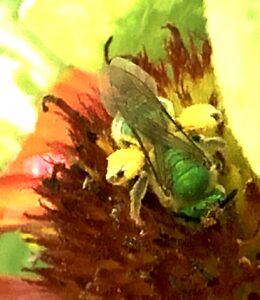Nature observation used to be essential for your survival. You would not be here today if your ancestors were not observant. This was the case for most of human history. If you didn’t pay attention to plants you could get poisoned. And if you didn’t notice patterns in the tall grass you might get eaten. So how does this apply today?
Your survival is no longer as dependent on your observation skills in nature. However, your quality of life and the richness of your experience can still be improved by developing this skill. In fact, many modern humans walk through the world like zombies. We don’t notice the world around us.
“You see, but you do not observe. (…)The world is full of obvious things which nobody by any chance ever observes.”
Sherlock Holmes
Holmes would have made a great nature journaler and I wish he were still here to teach us. But since he isn’t here are 12 observation tips I came up with on a recent nature journaling outing.
12 Nature Observation Tips
1. Have a focus. Start with a focus in mind and you will be able to observe more deeply and not get distracted. A taxon target or other is a good way to do this. Choose a taxa such as plants (kingdom), or birds (class), or bees (family.) You can also focus on a location, a type of interaction etc.
2. Use binoculars. Sherlock always had a magnifying glass because it allowed him to zoom in. If you use close-focus binoculars like I do you can look at close details and further away objects.
3. Sit still for a bit. While sitting still is a lost art in the modern world it is essential for better nature observations. By staying in one spot for a while you will see more animals as they get used to your presence.
4. Draw a diagram. I’m surprised Sherlock didn’t use this tool more. Today we know that drawing is one of the most powerful learning tools. You will notice way more just by trying.
5.Zoom in and Zoom Out. Most people see the world from the same magnification all the time. Practice zooming in and out intentionally to notice more.
6. Don’t Let What You Think You Know Get in the Way of Learning New Things. We have a lot of baggage when we go into nature and we are the most over-informed generation of humans. This information can be wrong and it can prevent us from noticing real things.
7. Don’t Be Too Focused. Don’t focus so much that you are not aware of new and perhaps extraordinary things that happen around you.
8. Quantify Your Observations. Use specific numbers and measurements instead of vague words such as: many, a few, or a lot.
9. Go Deeper With One Subject. Take the time to drop in deeper with one subject. In this way you are bound to find something of interest even if the subject isn’t your favorite at first.
10. Verbalize What You See. Do not worry about what other people think. It is ok to talk to yourself. In fact, by verbalizing what you see you will improve your recall and enhance your visual memory.
11. Compare Observations of Similar Things. The human brain notices more when it compares two things than when it looks at things in isolation. This is called a joint comparison.
12: Look Closer. A lot of the most interesting and important things in the world are small. By looking closer you will learn a lot more.

If you follow all of these nature observation tips you will be a Nature Sherlock in no time!